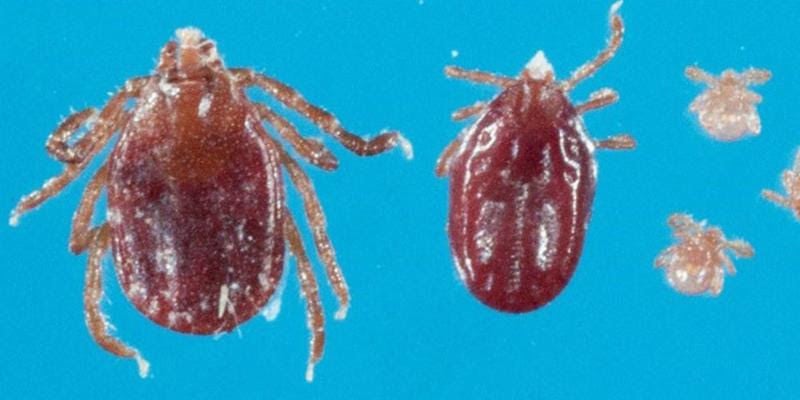 |
| The longhorned tick, which officials say is small and difficult to detect and can be harmful to both livestock and humans. The State Department of Agriculture has confirmed the presence of the tick in West Virginia. |
The National Veterinary Services Laboratories confirmed the presence of the longhorned tick in West Virginia Monday, according to the West Virginia Department of Agriculture.
“We want people to understand we now have confirmation this tick is in West Virginia. Livestock producers and the public should take extra precautions,” said Kent Leonhardt, West Virginia commissioner of agriculture. “We will be working with veterinarians throughout the state on how to handle outbreaks.”
The longhorned ticks were identified by samples collected from two separate farms in Hardy County, both of which are near the Virginia border. Last week the Virginia Department of Agriculture and Consumer Services confirmed the presence of the tick in the state.
The longhorned species of tick is not native to the United States, and the U.S. Department of Agriculture considers them to be a serious threat to livestock. Heavy tick infestations could cause stunted growth, decreased production and animal deaths.
"Livestock producers, animal owners and veterinarians should notify the State Veterinarian’s office if they notice any unusual ticks, or ticks that occur in large numbers on an individual animal," said State Veterinarian Dr. James Maxwell. "Livestock producers can work with their veterinarians to develop a tick prevention and control program."
In addition, the longhorned species is known to carry several diseases that can affect humans as well as livestock, and some are not prevalent in the United States.
Because of this, Miguella Mark-Carew, director of epidemiology and prevention services for the West Virginia Department of Health and Human Resources' Bureau for Public Health, said it is important to check for ticks after spending time outdoors in wooded areas.
The species was first identified by the Animal and Plant Inspection Services of the U.S. Department of Agriculture in New Jersey in November 2017.
The State Department of Agriculture is working with other state and federal agencies to increase outreach activities, educate veterinary practitioners and encourage tick submissions through the Veterinary Tick Submission Project, a voluntary sentinel tick surveillance system which will test ticks for disease pathogens.
These agencies include the State Department of Health and Human Resources, State Department of Natural Resources and the U.S. Department of Agriculture's Animal and Plant Inspection Services.
hose with questions regarding animals can call the State Department of Agriculture's Animal Health Division at 304-558-2214.
Those with questions about tickborne diseases should contact the State Department of Health and Human Resources' Division of Infectious Disease Epidemiology at 304-558-5358, extension 1, or visit the department website's Tickborne Diseases page.









No comments:
Post a Comment